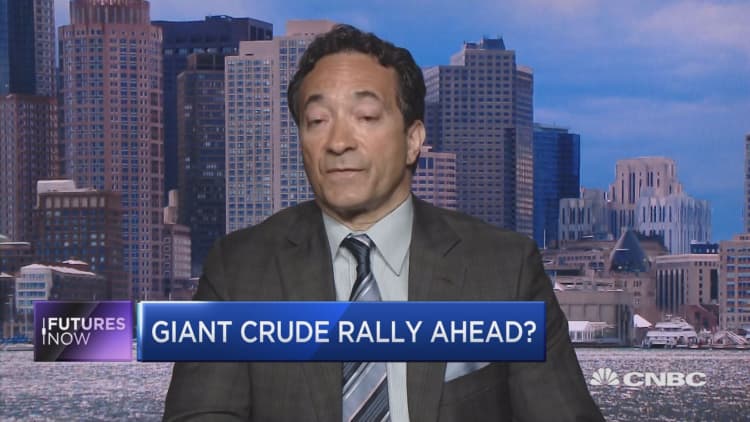
Crude is on track to double its price per barrel, according to one technician whose bold call had CNBC's "Futures Now" traders scratching their heads this week.
Crude saw its worst day in 2 months this week, plunging more than 4 percent alone on Thursday. The commodity also dipped below $46 a barrel for the first time since November 30 of last year, and is down more than 15 percent.
Bill Strazzullo, chief market strategist at Bell Curve Trading — who correctly called for crude's plunge to the $30 range back in 2013 — said oil could be on the verge of a massive rally that would send the commodity to levels not seen in three years.
"I think over the next [few years] it's not out of the question that you push $80- to $90" per barrel on oil, Strazzllo said in a recent interview with CNBC's "Futures Now." That's a nearly 100 percent rally from where the commodity is currently trading.
According to Strazzullo, the "dramatic shift in supply and demand dynamics" that sent crude plunging from its high of more than $100 per barrel in 2013 to its low of $26 in February 2016 has created a new normal for the commodity.
"The whole pricing structure has shifted lower. But when you look at the new structure, the bottom is still around $30 a barrel. We think fair value is up around $60, and probably the upper end of the range is $80 to $90," he added.
Along those lines, Goldman Sachs said in a research note that the broader picture for oil "remains supportive" of higher prices despite waning demand from China — one of the most voracious energy consumers on the planet. The bank added that it expects "robust demand growth" in 2017, particularly with OPEC members appearing to hold the line on production cuts.
Strazzullo emphasized that a more positive global economic outlook could boost demand over the next few years.
"When you look at a bigger picture, you still have a situation where you have recovering economies in Europe, and we have a stable economy here that should be on the mend," explained Strazzullo. "So you still have pretty good demand going forward."


